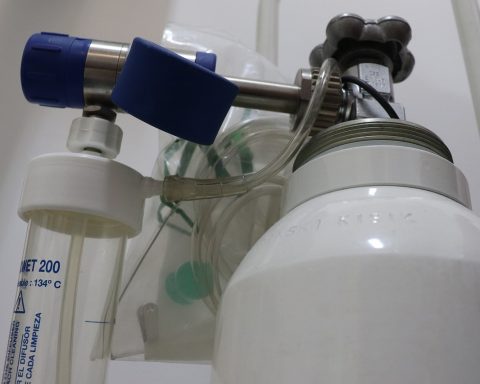Millions of people, especially Southeast Asians, are affected by beta thalassemia, a disease characterized by abnormal synthesis of hemoglobin followed by excessive extravascular hemolysis. Patients with beta thalassemia major have severe hemolysis and must receive regular blood transfusions and iron chelation therapy. Without iron chelation treatment, iron overload occurs because of all the blood transfusions and hemolysis.
When the total iron content of the body increases, it induces the production of free radical oxygen species (ROS), including hydrogen peroxide, which can be eliminated by glutathione (an antioxidant synthesized in the body). However, in the presence of free iron in the plasma, hydrogen peroxide oxidizes into hydroxyl ions, which are high potency radicals that are very hazardous to the body. Hydroxyl ions oxidize the proteins and lipids of the cell membrane, causing leakage and cell death.
Because of high oxidative stress, beta-thalassemia patients develop complications, such as progressive anemia from intravascular hemolysis, diabetes mellitus, abnormal liver function, and pulmonary diseases.
Beta Thalassemia Major and the Role of Antioxidants
Antioxidants such as vitamins E and C help control highly reactive free radical oxygen species. They scavenge the ROS, getting oxidized themselves and thus protecting precious biochemical substances of the body from being oxidized.
Excessive production of free radicals is not the only culprit that leads to thalassemia complications. Studies have revealed that vitamin E deficiency can also cause complications. Vitamin E, or tocopherol, is one of the most potent antioxidants, and supplementation with vitamin E improves the antioxidant status of the body.
Vitamin C deficiency can also cause complications in thalassemia patients. Vitamin C is also an antioxidant, although its supplementation has not been studied in thalassemia patients because of its ability to produce reactive radicals by itself under certain circumstances. The effects of excess vitamin C on thalassemia were discovered when a patient with iron overload took 1 gram of vitamin C per day against medical advice and consequently died of cardiac failure.
Studying the Effects of Vitamin E and C Supplementation in Thalassemia Patients
Nevertheless, vitamin C plays a major role in vitamin E recycling. Researchers from Chulalongkorn University studied the cumulative effect of vitamins E and C on the antioxidant status of thalassemia patients in a study titled “The Benefits of Vitamin C and Vitamin E in Children with Beta-Thalassemia with High Oxidative Stress,” which revealed important relationships between vitamins E and C and antioxidant status.
Twenty patients with beta thalassemia major were recruited for the study. The patients were between five and fifteen years of age. During two to twelve years of treatment, each patient had received six to one hundred blood transfusions None of them had ever received iron chelation therapy. Eighty-five percent of the children had hyperferritinemia, indicating iron overload. The patients were given vitamin E and vitamin C supplements.
Patients who weighed less than 20 kg received 100 mg of vitamin C and 400 mg of vitamin E. Patients who weighed more than 20 kg received 100 mg of vitamin C and 600 mg of vitamin E. Blood samples from the patients were collected at the time of recruitment, after one month of supplementation, and after three months of supplementation. Vitamin C and vitamin E levels, total antioxidant status (TAS), glutathione levels, malondialdehyde levels (MDA, which are free radicals produced by oxidation of lipids), hemoglobin levels, and total bilirubin were measured.
The Results
After the treatment, the levels of both vitamins E and C increased significantly but were still lower than that of the normal population. This was due to excessively high oxidative stress.
The level of glutathione also increased after supplementation. Glutathione is an important antioxidant in red blood cells, and it is essential in vitamin C recycling. Thus, vitamin C supplementation in thalassemia patients appeared to be beneficial, but vitamin C should be supplemented at low doses because of its ability to generate free radicals.
Supplementation did not affect hemoglobin levels or the degree of hemolysis. Bilirubin levels decreased a little, but the impact was insignificant.
Thus, the cumulative effect of vitamins E and C is more beneficial than vitamin E supplementation alone. Although antioxidant supplementation was able to somewhat decrease oxidative stress, it was not sufficient. The best strategy would be iron chelation therapy along with antioxidant supplementation to prevent thalassemia complications.
Reference
Dissayabutra T, Tosukhowong P, Seksan P. “The Benefits of Vitamin C and Vitamin E in Children with Beta-Thalassemia with High Oxidative Stress.” Journal of the Medical Association of Thailand 88, no. 4 (2005): S317–S321. Retrieved from https://www.ncbi.nlm.nih.gov








